Council - December 3rd, 2025
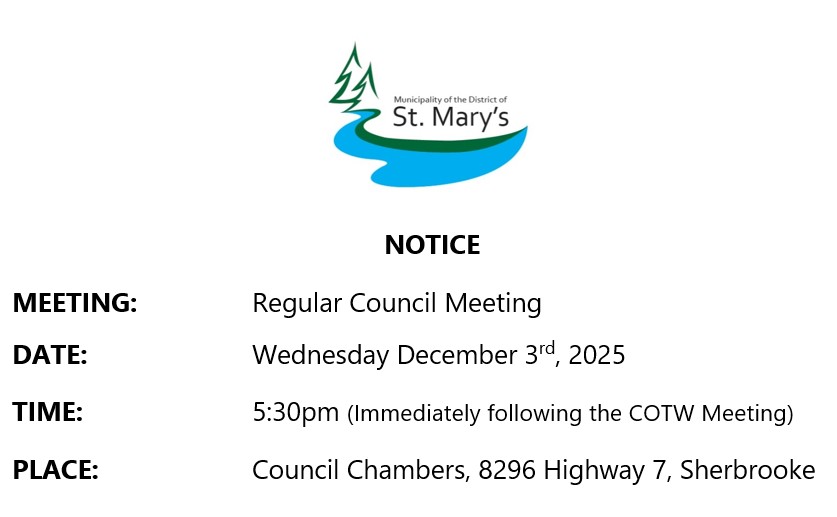
NOTICE
MEETING: Regular Council Meeting
DATE: Wednesday, December 3rd, 2025
TIME: 5:30pm (Immediately following the COTW Meeting)
PLACE: Council Chambers, 8296 Highway 7, Sherbrooke
- Call to Order
- Roll Call
- Additions to the Agenda
- Approval of the Agenda
- Approval of Minutes of Council Meeting held November 19th, 2025
- Business Arising from Minutes
a. CAO Report for November will be presented to Council in January, due to cancellation of December 17th meeting of Council - Recommendations from Committees of Council
a. Committee of the Whole – November 19th, 2025 - Outside Committee Reports
a. Port Bickerton & Area Planning Association – October 27th/November 24th, 2025
b. Guysborough Community Health Board – October 10th/November 10th, 2025 - Other Matters of Business
Adjournment
A 10-minute question and answer period pertaining to agenda items.
COTW - December 3rd, 2025
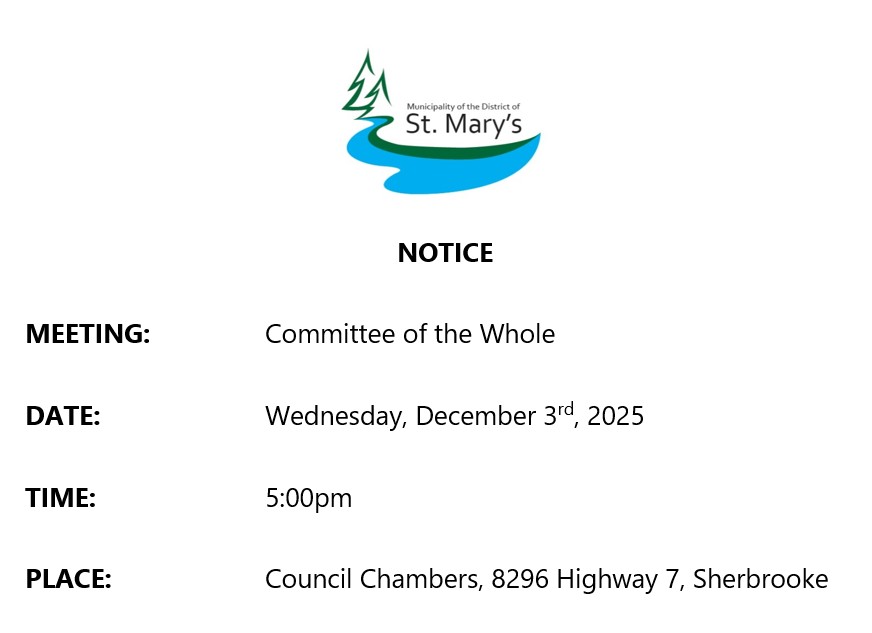
NOTICE
MEETING: Committee of the Whole
DATE: Wednesday, December 3rd, 2025
TIME: 5:00pm
PLACE: Council Chambers, 8296 Highway 7, Sherbrooke
- Call to Order
- Roll Call
- Additions to the Agenda
- Approval of the Agenda
- Approval of Minutes of COTW held Wednesday November 19th, 2025
- Business Arising from Minutes
a. Feedback from Council for Curbside Waste Collection Contract RFP
- Correspondence
a. Letter from Department of Municipal Affairs - Honourable John A. MacDonald November 24, 2025
- Presentation:
a. Royal Canadian Mounted Police (RCMP) – Quarterly Update
- Other Matters of Business
a. Staff Report – Policing Review
b.Staff Report – Housing Accelerator Fund Update
c. Staff Report – Extended Producer Responsibility
Adjournment
December 2025 Newsletter
The December 2025 edition of the Municipal Newsletter is now available online at: https://www.saint-marys.ca/2025-newsletters.html.
The print version should arrive in your mailbox soon!
Water Utility Maintenance - November 27, 2025
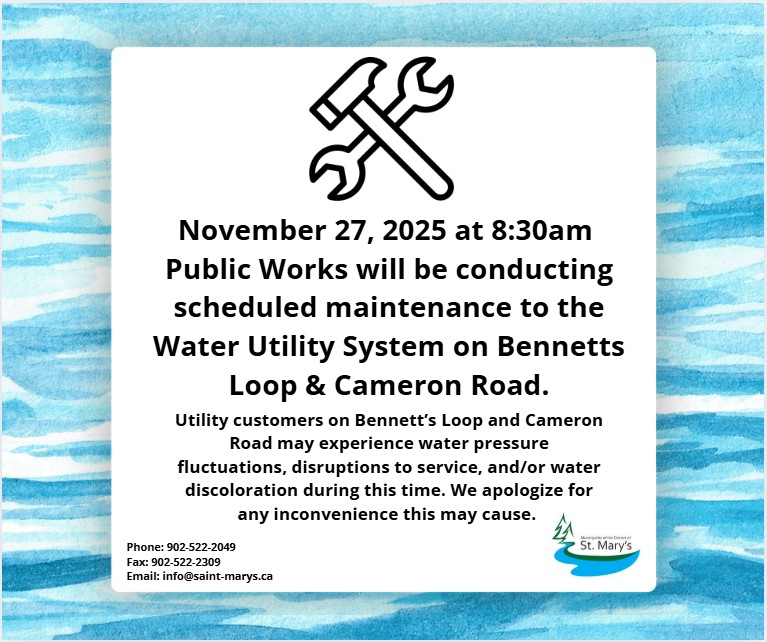
November 27, 2025 at 8:30am
Public Works will be conducting
scheduled maintenance to the Water Utility System on Bennetts Loop & Cameron Road.
Utility customers on Bennett’s Loop and Cameron Road may experience water pressure fluctuations, disruptions to service, and/or water discoloration during this time. We apologize for any inconvenience this may cause.
New Recycling Program Starting December 1, 2025

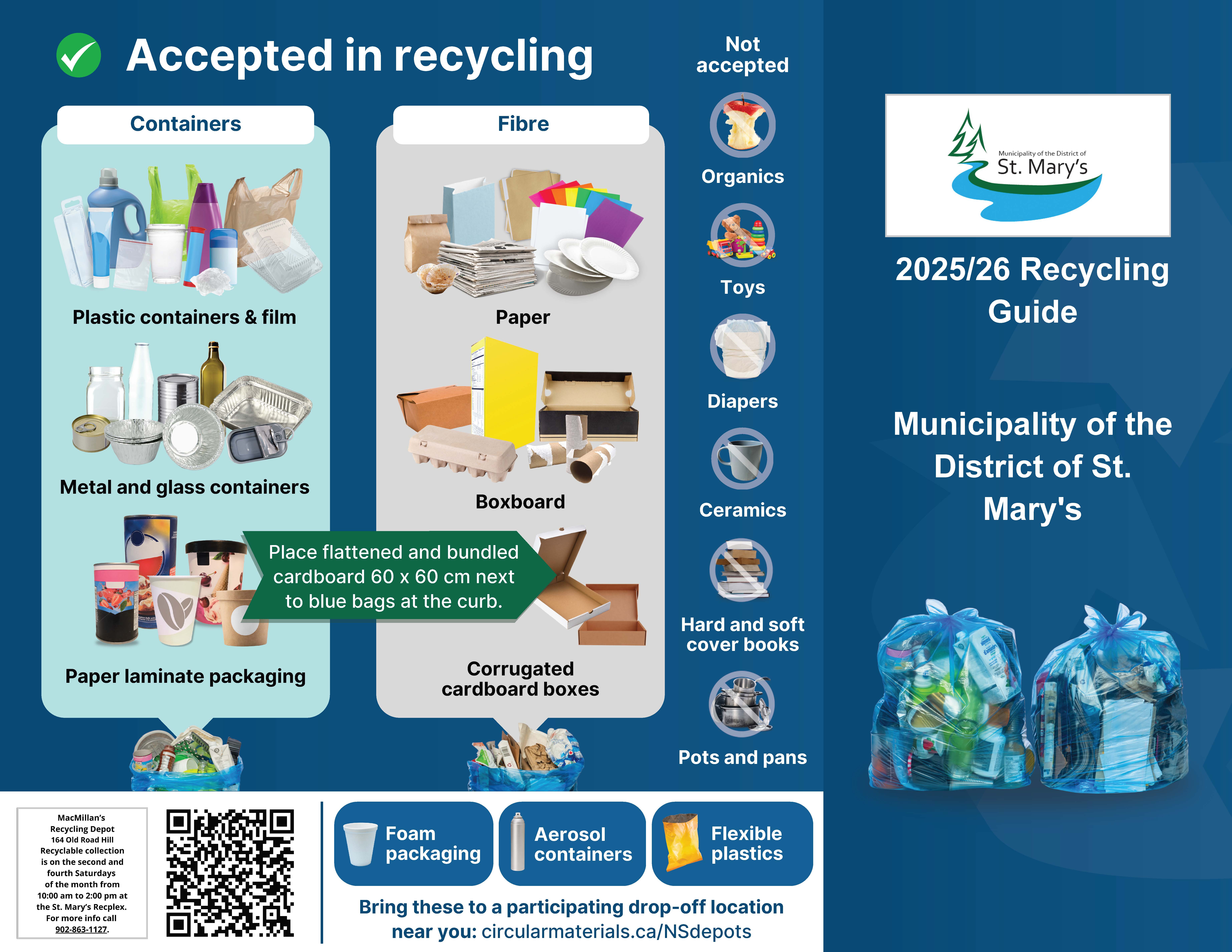
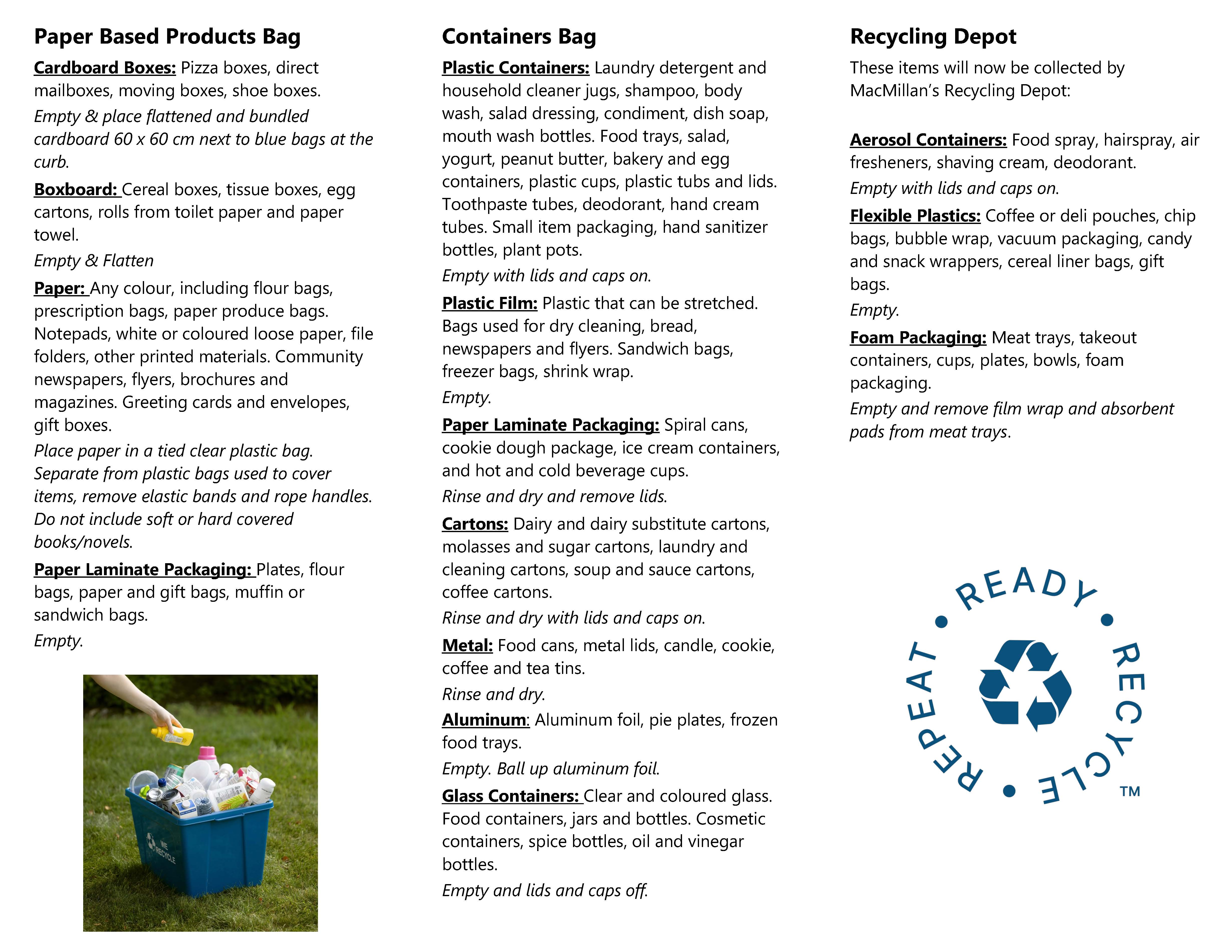
Starting December 1, St. Mary’s recycling program will be managed by Circular Materials, a national not-for-profit organization that is committed to building an efficient and effective recycling system in Nova Scotia. Curbside collection will continue as usual and will now include more items. As part of this program, starting December 1, 2025, you’ll be able to recycle the same materials no matter where you live across the province. More information will be provided over the coming weeks. To find out more, visit https://www.circularmaterials.ca/resident-provinces/nova-scotia
Recycling Sorting Guide is available at: pdf Detailed Materials Recycled List NS(1.28 MB)
For a list of Nova Scotia Depots accepting these materials please click here: https://www.circularmaterials.ca/nsdepots/
Public Notice: Municipal Water Distribution Return
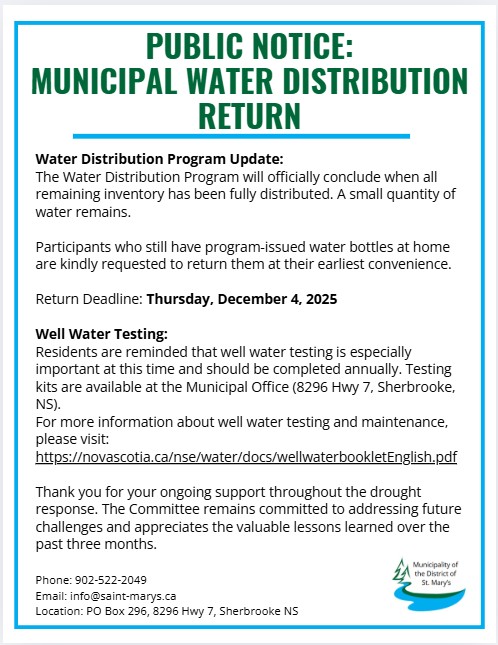
Water Distribution Program Update:
The Water Distribution Program will officially conclude when all remaining inventory has been fully distributed. A small quantity of water remains.
Participants who still have program-issued water bottles at home are kindly requested to return them at their earliest convenience.
Return Deadline: Thursday, December 4, 2025
Well Water Testing:
Residents are reminded that well water testing is especially important at this time and should be completed annually. Testing kits are available at the Municipal Office (8296 Hwy 7, Sherbrooke, NS).
For more information about well water testing and maintenance, please visit
https://novascotia.ca/nse/water/docs/wellwaterbookletEnglish.pdf
Thank you for your ongoing support throughout the drought response. The Committee remains committed to addressing future challenges and appreciates the valuable lessons learned over the past three months.
Phone: 902-522-2049
Email: This email address is being protected from spambots. You need JavaScript enabled to view it.
Location: PO Box 296, 8296 Hwy 7, Sherbrooke NS





